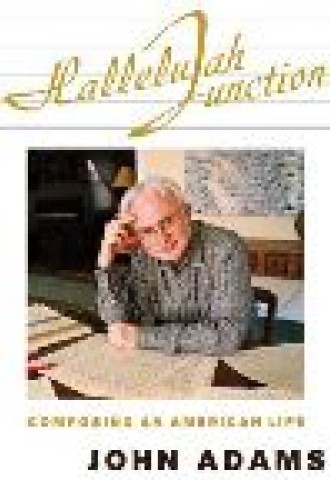BookMarks
Despite the flippant title, this is a serious theological meditation on the Lord’s Prayer which serves also as a commentary on today’s social context. Work says his book contains “remedial exercises in prayerful theology.” He’s not sure that a “prayer life” is something we should aspire to, but he believes that the Lord’s Prayer is transformative. With each petition of the prayer he reflects on some issue, and then ponders how the prayer speaks to it. The chapter on “Give us this day our daily bread” begins with an extended treatise on how money is regarded in both his extended family and the larger culture. The Lord’s Prayer, he argues, transcends individualist and collectivist economies. The author is an evangelical who makes a good conversation partner for postliberals. The volume concludes with three of the author’s own sermons.
Composer-conductor John Adams (born 1947) was raised in New England by parents more interested in making music than money. His father, a clarinetist, taught him to play the instrument, and by the time he graduated from high school he had mastered all its classical repertoire. While Adams writes about his own accomplishments with modesty, his is a story in which obvious talent created opportunities. He took two degrees at Harvard, and he was the university’s first graduate student to have a composition accepted as his thesis. He moved to California, where he found the cultural climate more conducive to the avant garde music he composed. His reflections on the creative process will be of interest to any artist. His expositions of his own compositions will bog down many readers.







